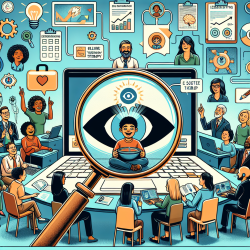Introduction
In the ever-evolving field of stem cell research, the inclusion of diverse perspectives is crucial for advancing ethical standards and enhancing global collaboration. A recent study titled Diversifying Stem Cell Debates: Including Muslim Contexts and Perspectives sheds light on the importance of incorporating Muslim viewpoints in international guidelines. This blog explores how practitioners can leverage these insights to enrich their practice and foster a more inclusive scientific community.
The Importance of Inclusion
The research highlights that Muslim societies have a rich history of scientific inquiry and a strong tradition of promoting knowledge. However, due to historical and socio-political factors, there has been a shift away from engaging with modern scientific advancements. The study argues for the inclusion of Muslim voices in international deliberations to improve understanding, compliance, and trust in stem cell research.
Practical Steps for Practitioners
Practitioners can take several steps to incorporate the outcomes of this research into their practice:
- Engage with Diverse Perspectives: Actively seek out and include Muslim scholars, scientists, and ethicists in discussions and decision-making processes related to stem cell research.
- Promote Transcultural Dialogue: Foster open communication between different cultural and religious groups to enhance mutual understanding and collaboration.
- Develop Inclusive Guidelines: Work towards creating ethical guidelines that consider the unique contexts and values of diverse communities, including Muslim societies.
- Encourage Public Deliberation: Facilitate public discussions on ethical issues in stem cell research to better understand and address community concerns and expectations.
Encouraging Further Research
Practitioners are encouraged to delve deeper into the topic by exploring the original research paper. Understanding the historical and contemporary contributions of Muslim societies to science can provide valuable insights for developing more inclusive and effective research practices.
Conclusion
Incorporating Muslim perspectives in stem cell research debates can lead to more robust ethical standards and improved global collaboration. By taking proactive steps to engage with diverse voices, practitioners can contribute to a more inclusive and innovative scientific community.
To read the original research paper, please follow this link: Diversifying stem cell debates: Including Muslim contexts and perspectives.










